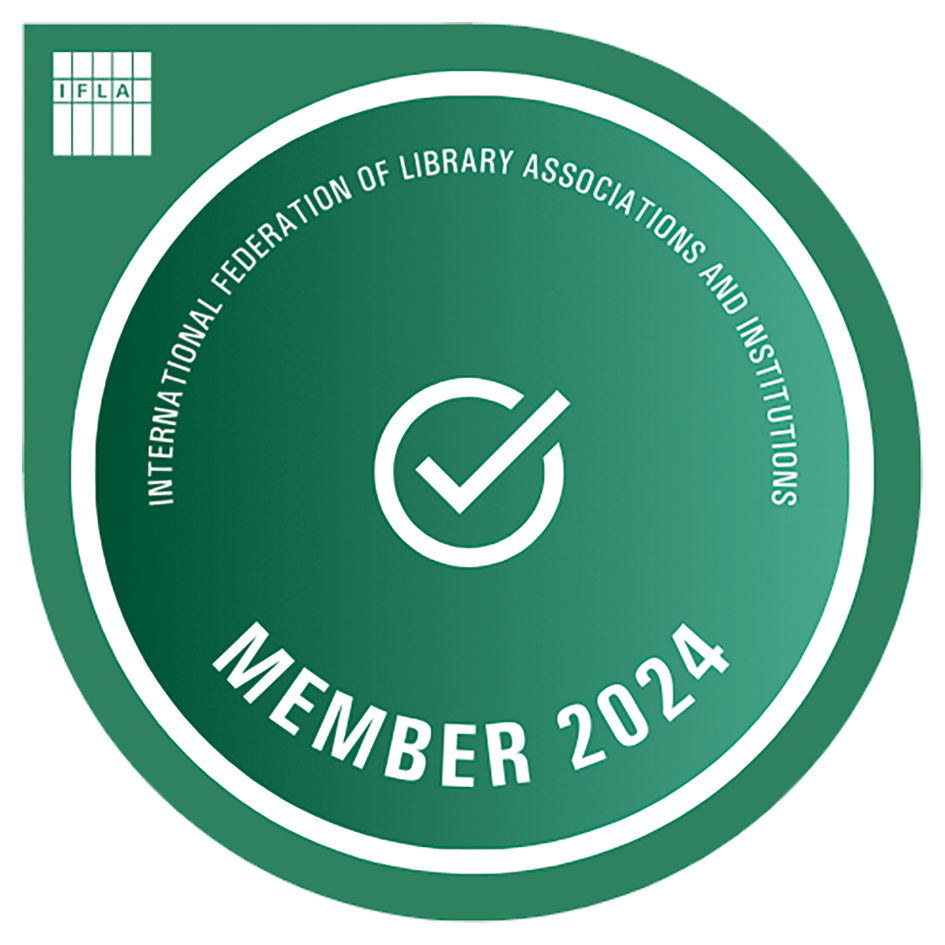News & Events
- 2022-03-17
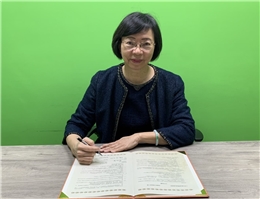
Taiwan had just finished a joyous lunar New Year’s celebration when National Central Library (NCL) successfully established the 40th TRCCS at St. Andrews University (St. AU), the alma mater of Prince William and Princess-consort Kate. Through the discussions that took place between the parties during this collaboration, the NCL was notified by the Taipei Representative Office in the United Kingdom that St. Andrews University needed assistance with the cataloging of their Chinese holdings and was willing to collaborate in related areas. Subsequently, the NCL spend more than six months communicating and deliberating with St. AU. On March 7, NCL Director-General Shu-hsien Tseng and St. AU Chief Legal Officer Dr. Roy Drummond and Director of Libraries and Museums Dr. Catherine Eagleton signed the Agreement, formally beginning this collaborative project.
Director-General Tseng explained that in 2011, the government began establishing Taiwan Academies overseas in an effort to promote Chinese culture with Taiwan characteristics to the world. Starting with Taiwan’s unique features and advantages, the government used its advanced information systems and digital technology to synthesize Chinese instructional materials and promote traditional characters, Taiwan research, and Chinese studies, and Taiwan’s multiculturalism. These aspects were important mediums for Taiwan’s culture to interact with the international community.
The NCL sets this TRCCS up in St. AU’s main library, which is located in Scotland. It has 10,424 undergraduate students, including 2,164 graduate students. That graduate students comprise 20 percent of the student body makes this an important research university. St. AU was established in 1413 and is the third oldest university in the English-speaking world. In recent years, it has leaped to the second top university in Great Britain. Its reputation and scholarly outpouring put it on equal footing with Oxford and Cambridge.
The University of St. Andrews library has actively developed its library holdings on Taiwan studies and Chinese studies courses, including such areas as classical literature, history, economy, politics, art, and language. St. AU established a Chinese Studies department in 2020, which is under the jurisdiction of the College of Foreign Languages. Last year (2021), it began accepting students into its program. In addition to undergraduate studies, it also provides opportunities for masters and doctoral researchers to conduct comprehensive studies on contemporary Chinese language and culture. Professor Yu-feng Chi, who is from Taiwan and teaches in this department stated that St. AU’s undergraduate program allows students to take a minor or to even take three majors. Consequently, students in any department or graduate institute can take courses from the Chinese Studies department.
Courses include language, as well as 20th and 21st century Chinese cultural practices by mainstream, public, and overseas Chinese in various areas. The courses offered widely discuss politics, economies, literature, art, music, movies, media, etc. They also include a deep and wide treatment of Chinese culture. Research scopes are encompassed in the broadest meaning of Sinophone. Apart from countries in Asia that use Chinese, it includes other countries on the five main continents to where Chinese speakers have migrated. The aspect most closely related to Taiwan is the Chinese language department primarily teaches traditional characters. Consequently, Director-General Tseng is very confident that this collaborative project will have deep meaning in terms of promoting Chinese teaching and research resources with Taiwan characteristics.
-
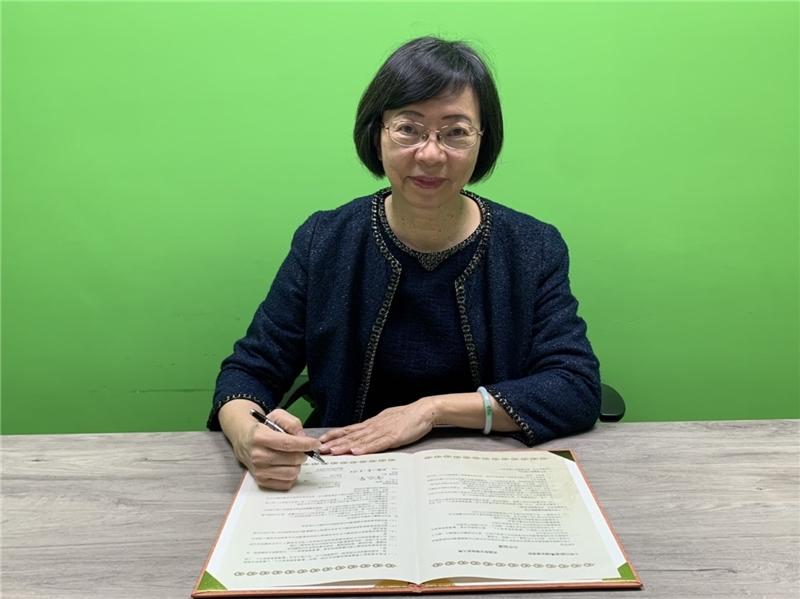 NCL Director-General Shu-hsien Tseng signs the collaboration agreement with the University of St. Andrews to set up the 40th Taiwan Resource Center for Chinese Studies .
NCL Director-General Shu-hsien Tseng signs the collaboration agreement with the University of St. Andrews to set up the 40th Taiwan Resource Center for Chinese Studies . -
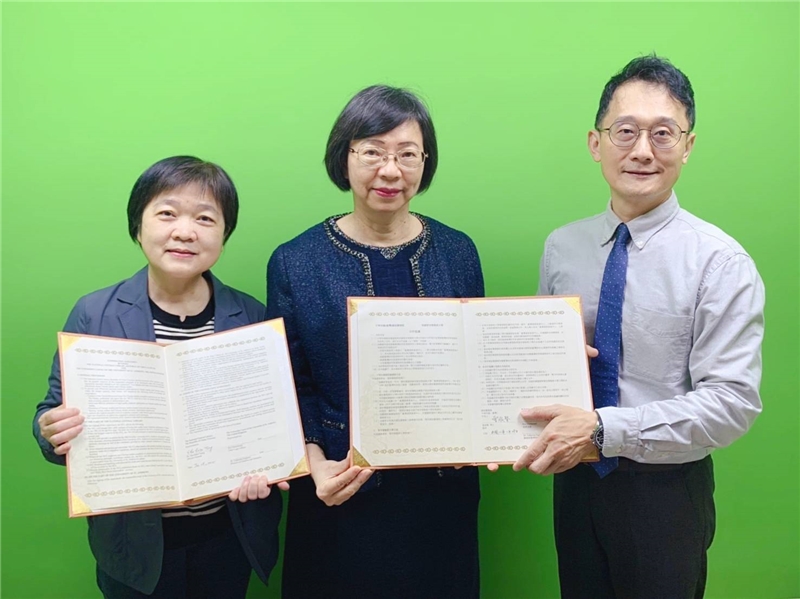 NCL Director-General Shu-hsien Tseng (center), Director Shu-Fen Hung (1st left) and Dr. Leo Lin hold the agreement.
NCL Director-General Shu-hsien Tseng (center), Director Shu-Fen Hung (1st left) and Dr. Leo Lin hold the agreement. -
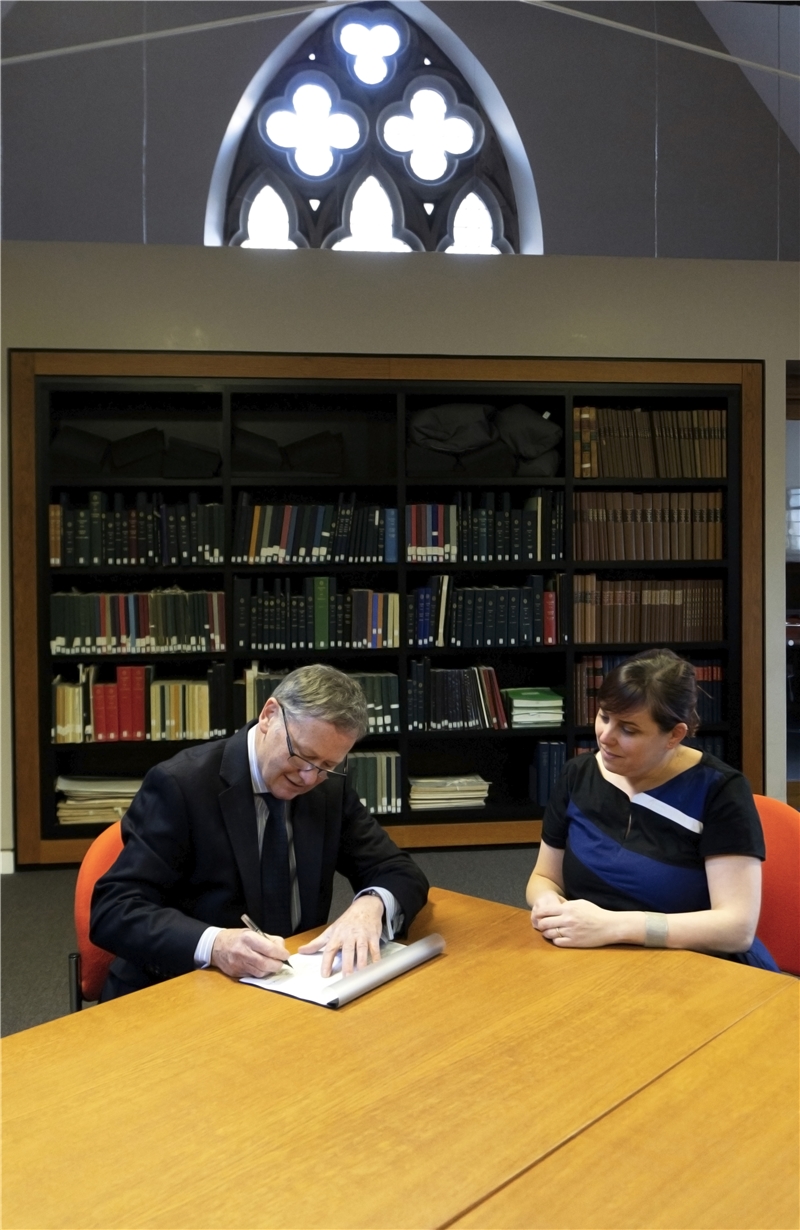 St. AU Chief Legal Officer Dr. Roy Drummond signs the TRCCS agreement (Source St. AU).
St. AU Chief Legal Officer Dr. Roy Drummond signs the TRCCS agreement (Source St. AU). -
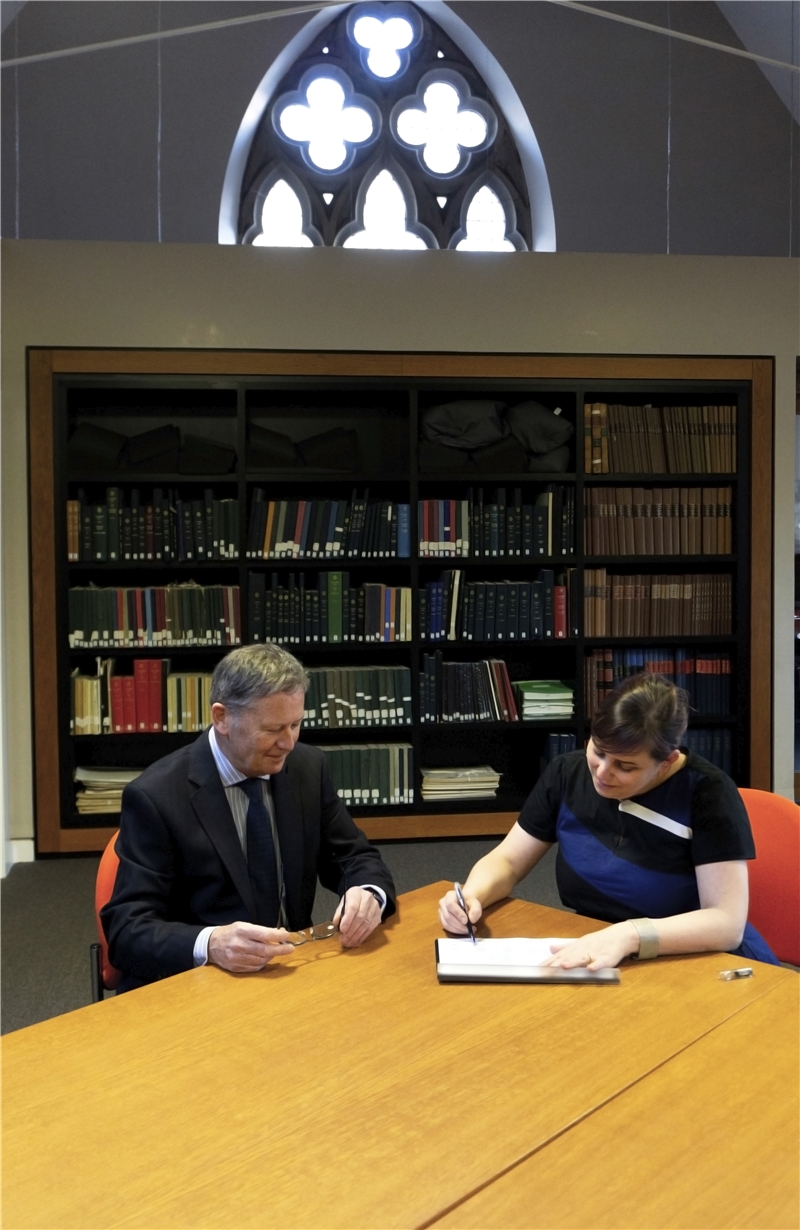 St. AU Director of Libraries and Museums Dr. Catherine Eagleton signs the agreement (Source St. AU).
St. AU Director of Libraries and Museums Dr. Catherine Eagleton signs the agreement (Source St. AU). -
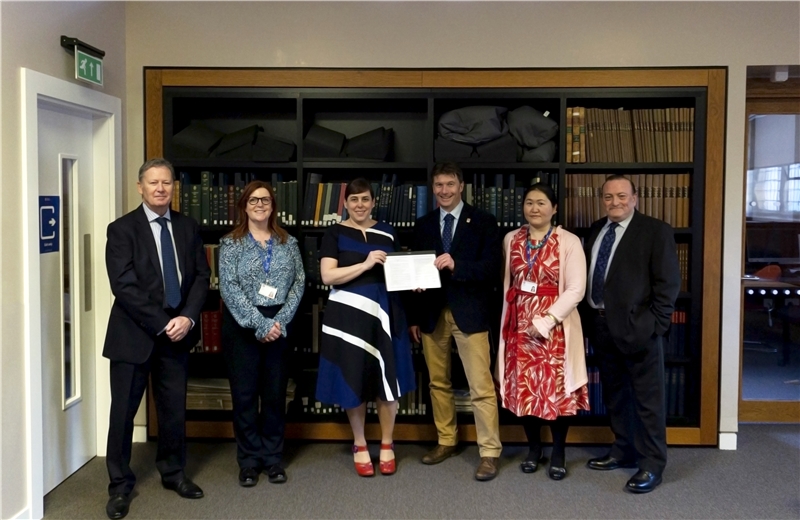 The photo of the signing event shows from left to right St. AU Chief Legal Officer Dr. Roy Drummond, Deputy Director Jennifer Louden and Director Catherine Eagleton of Libraries and Museums,Senior Vice Principal Prof. Brad Mackay (International Strategy and External Relations), Associate Lecturer Yvonne Chi and Prof. Gregory Lee from the Department of Chinese Studies, St. AU (Source: St. AU).
The photo of the signing event shows from left to right St. AU Chief Legal Officer Dr. Roy Drummond, Deputy Director Jennifer Louden and Director Catherine Eagleton of Libraries and Museums,Senior Vice Principal Prof. Brad Mackay (International Strategy and External Relations), Associate Lecturer Yvonne Chi and Prof. Gregory Lee from the Department of Chinese Studies, St. AU (Source: St. AU). -
 An exterior view of the main library of the University of St. Andrews main library (Source St. AU).
An exterior view of the main library of the University of St. Andrews main library (Source St. AU). -
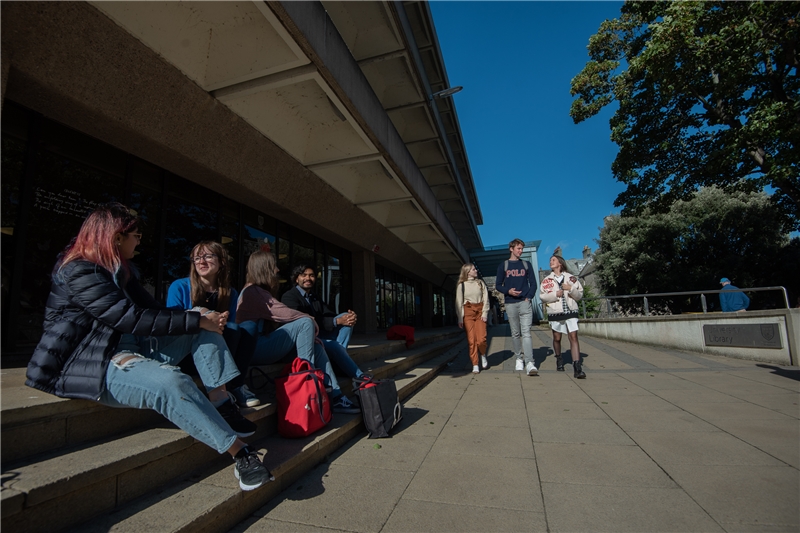 The main entrance of the University of St. Andrews main library (Source St. AU).
The main entrance of the University of St. Andrews main library (Source St. AU). -
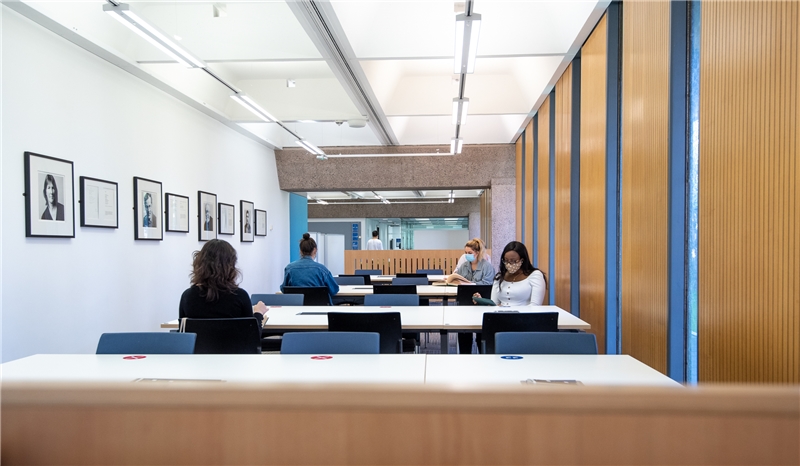 The reading area on 1st level of the University of St. Andrews main library (Source St. AU).
The reading area on 1st level of the University of St. Andrews main library (Source St. AU). -
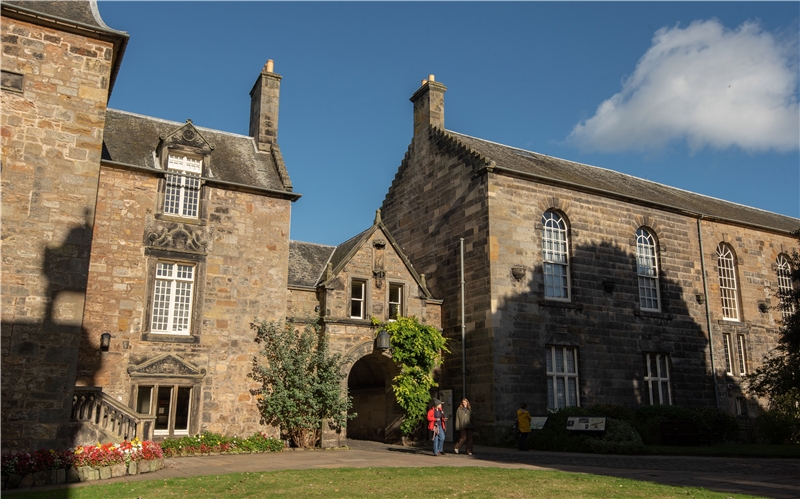 St. Mary’s Quadrangle (Source St. AU).
St. Mary’s Quadrangle (Source St. AU). -
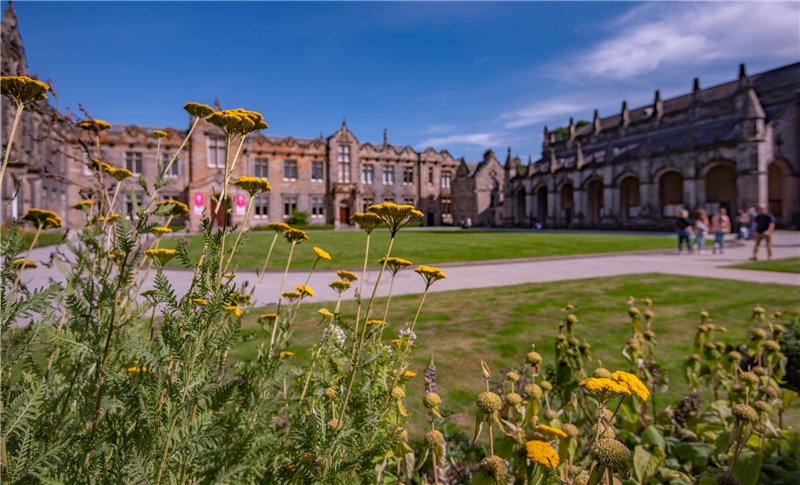 St. Salvator’s Quadrangle (Source St. AU).
St. Salvator’s Quadrangle (Source St. AU). -
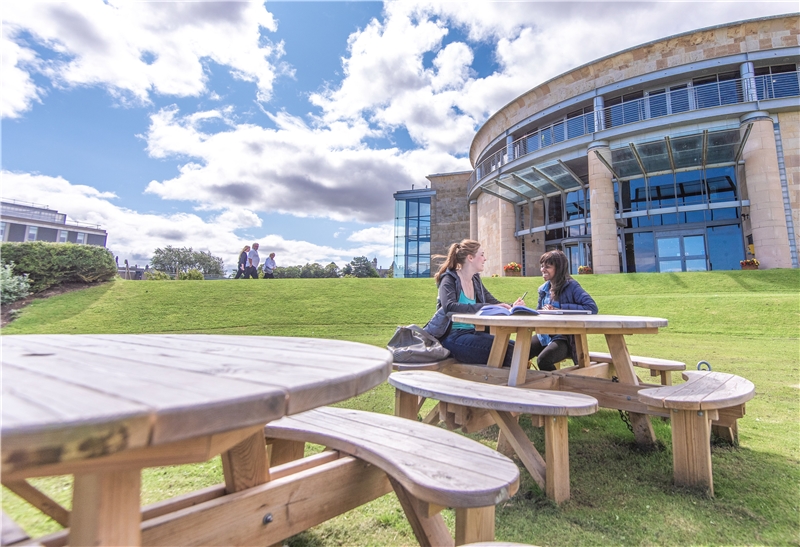 Students sitting outside the School of Management Gateway Building (Source St. AU).
Students sitting outside the School of Management Gateway Building (Source St. AU).
- Resources
- NEWS & Events
- ABOUT NCL
- International Cooperation and Exchange
- Services






